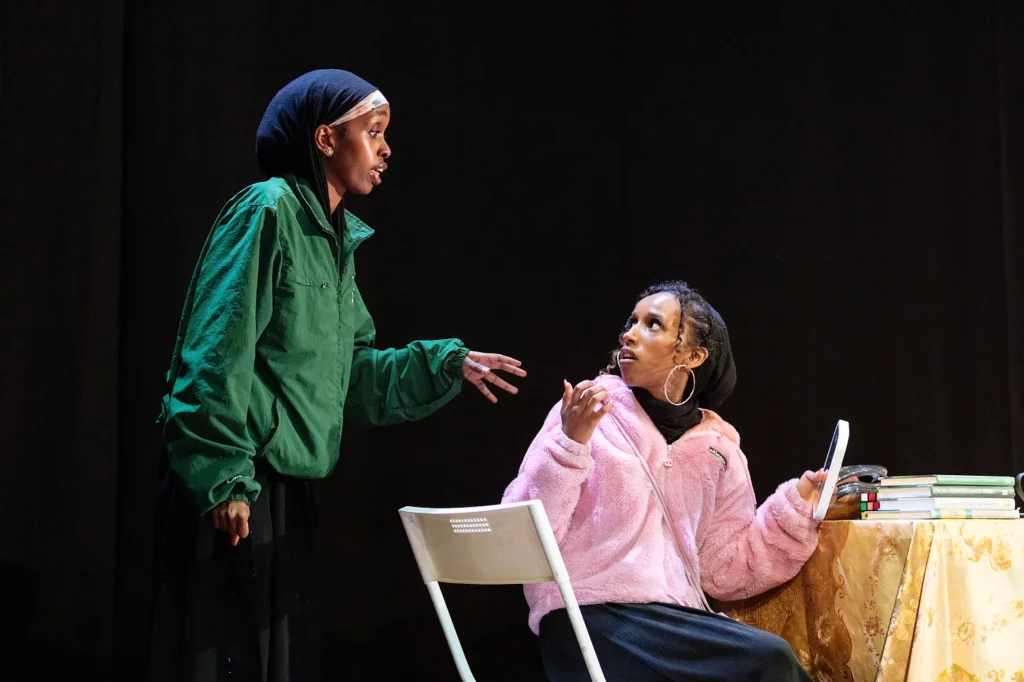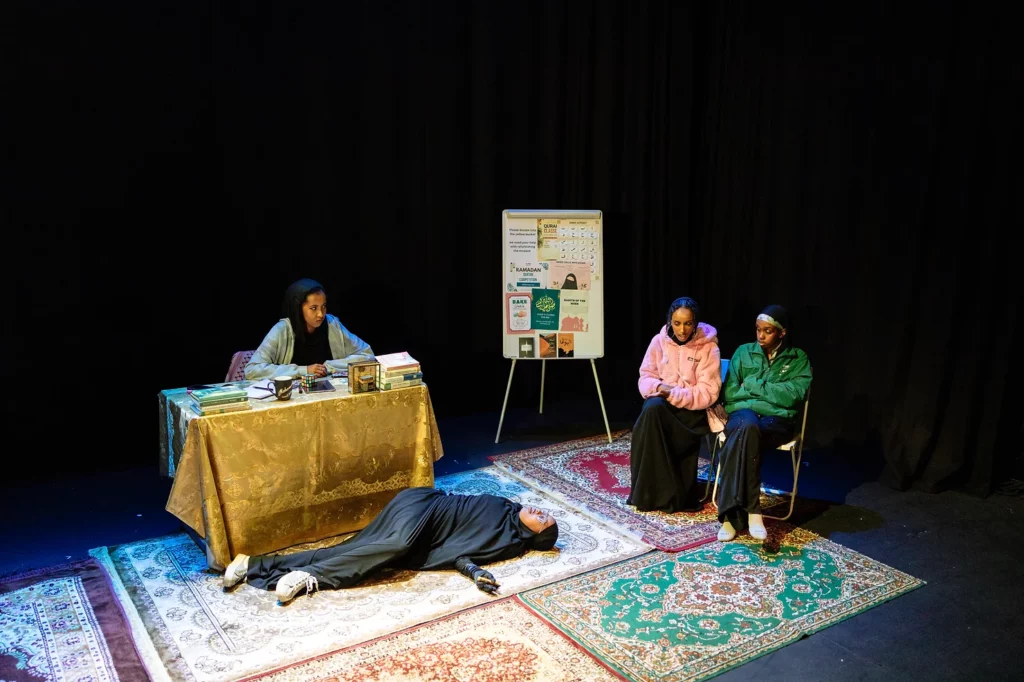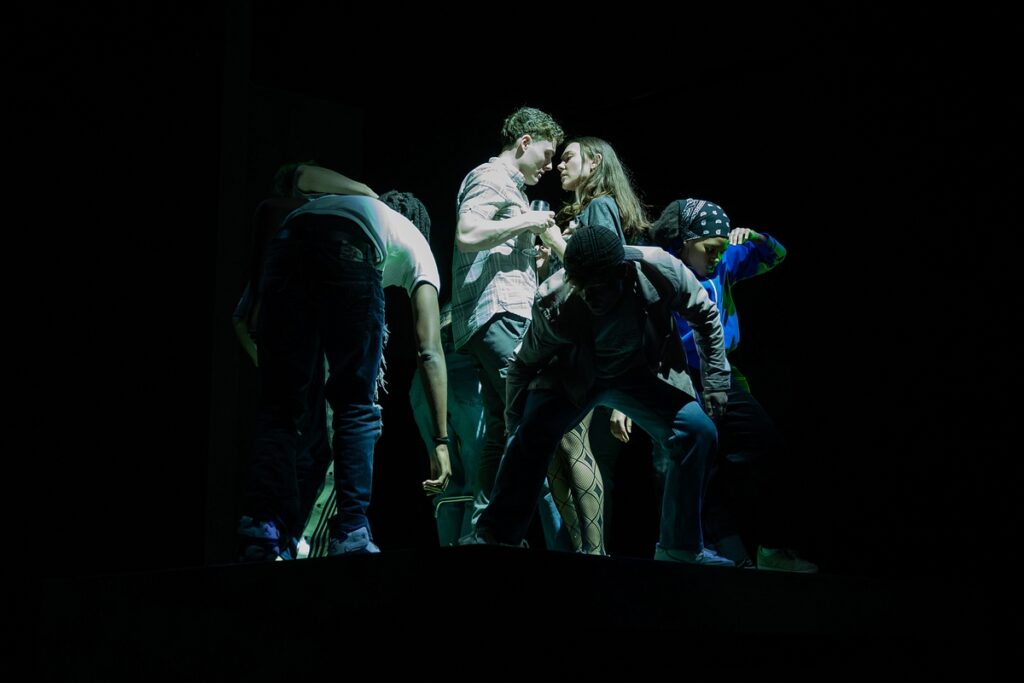
Sabrina Ali’s Dugsi Dayz kicks off David Byrne’s inaugural season as artistic director at the Royal Court Theatre. You might describe it as a ‘soft launch’ – an Edinburgh Fringe transfer that plays in the theatre’s upstairs studio space ahead of the big opening of the Ben Whishaw-fronted Bluets in the main theatre later this month.
But that would be to undersell the value of Ali’s entertaining play about four girls spending an hour of their Saturday together during detention in a dugsi (an Islamic school). Moreover, it bridges the gap between Byrne’s past life at the New Diorama and his new life at the Royal Court – the play was performed in Byrne’s previous home before and after its Edinburgh run last year.
For reasons they are only willing to admit to themselves, Munira (played by Ali), Hani (Hadsan Mohamud), Yasmin (Faduma Issa) and Salma (Susu Ahmed) have found themselves in detention in this modern-day Islamic riff on The Breakfast Club. With the teacher nowhere to be found, they’re forced to kill the time in other ways – raiding the teacher’s drawer of confiscated items for a start, telling old Somali ghost stories and, ultimately, learning about each other.

It’s easy to draw parallels with character stereotypes: there’s the good one, the bad one, the cool one and the strange one. and though Ali subverts much of the stereotypes – the strange character who the others have more in common with than they think, or the good character who shows themselves to have the same weaknesses as the others – those subversions are stereotypes in themselves. Yet, in a way, these things are what makes Dugsi Dayz accessible to a wider audience than people who are familiar with Somali Muslim culture. Rather than explaining the culture to us, Ali allows non-Somalis and non-Muslims to join the dots ourselves – essentially, treating everyone as adults.
After lots of enjoyable jesting between the four, excellently played by the pinpoint ensemble, Ali turns the drama on its head with a revelation about the dhaqan celis, or ‘return to culture,’ camps where young digressing Somalis are sent for ‘re-education.’ But all too quickly the drama moves back to the light bantering of the classroom as the girls readjust to their new understanding of each other. Under Poppy Clifford’s direction, the production nips along, coming in at just 80 minutes – you feel there is still space to plumb the depths of these girls’ experiences beyond the laughs.
Even with the potential to deepen its impact, it’s already an insightful play that stands, not just as a knowing take on The Breakfast Club (there are references throughout), but on its own merits. With the run already sold out, it might be hard to find a ticket to see it – but it marks Sabrina Ali out as one to watch.















